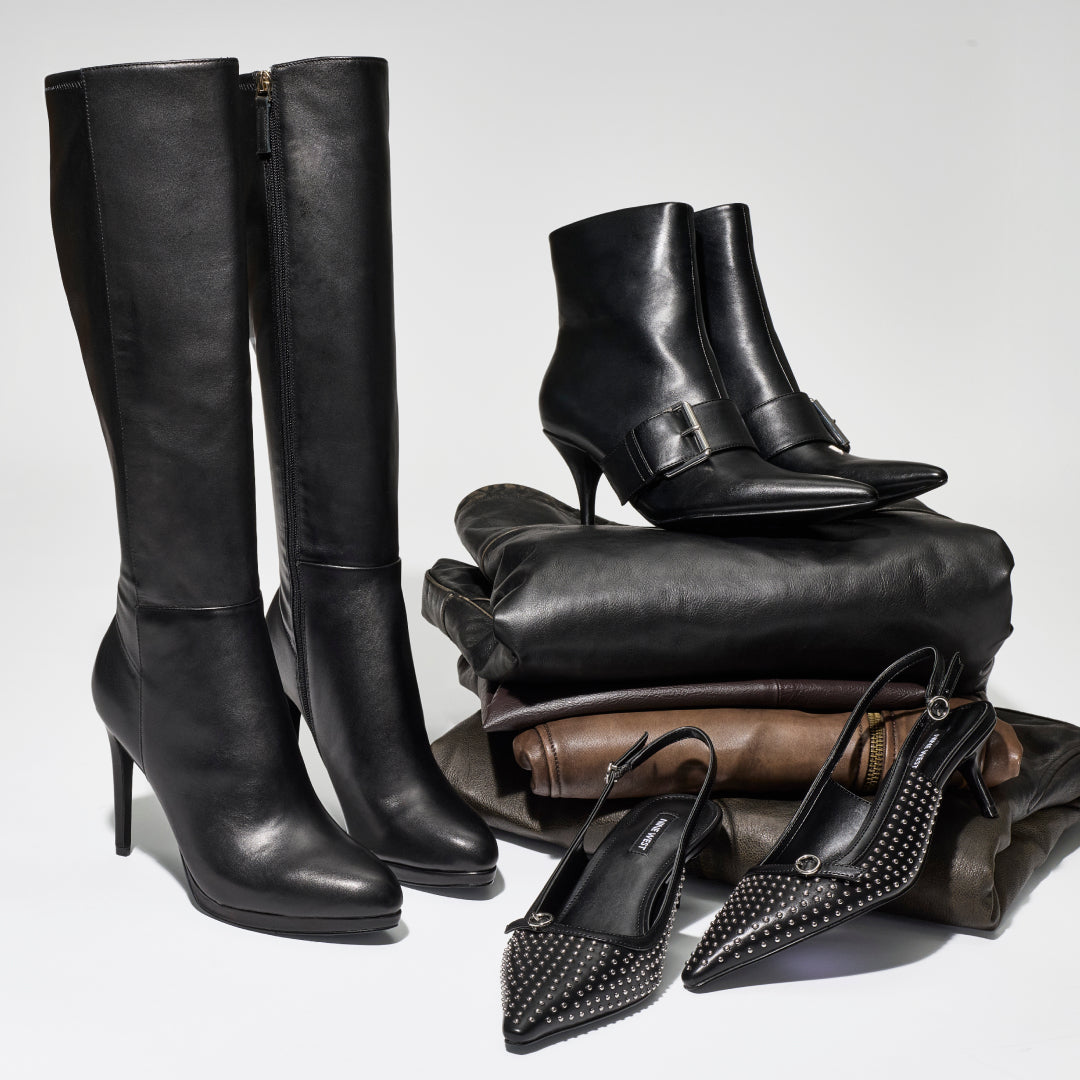Nine West, LLC.
Statement for the California Transparency in Supply Chains Act (SB 657)
Nine West, LLC. (the “Company” or “we”) is committed to legal compliance and ethical
business practices in all of our operations worldwide. We choose suppliers and contractors who
we believe share that commitment.
We take the risks of slavery and human trafficking in our supply chain very seriously. Like many
companies manufacturing or selling products in California, we are required to comply with the
California Transparency in Supply Chains Act of 2010 (California Senate Bill 657) beginning in
2012. That law was designed to increase the amount of information available to consumers about
the efforts of manufacturers and retailers to eliminate the risk of modern day slavery, forced labor,
human trafficking and similar human rights violations (“slavery and human trafficking”) from
their supply chain. Accordingly, below are some examples of how we are working to eliminate
that risk from our supply chain.
1. RISK ASSESSMENT. The Company internally assesses the risk of slavery and human
trafficking with respect to the supply chain for all of its products. To judge which of its sourcing
countries presents the highest risk levels, the Company utilizes several resources, including the
U.S. State Department’s annual Trafficking in Persons Report’s country rankings, the United
Nations Office on Drugs and Crime’s Global Report on Trafficking in Persons, the Director General
of the International Labour Organization’s reports on forced labor, and the U.S.
Department of Labor’s List of Goods Produced by Child Labor or Forced Labor. The Company
continuously assesses its risk as these resources are updated and as new, credible resources
become available.
2. AUDITS. The Company conducts audits of its direct suppliers to evaluate compliance with the
Company’s Standards for Contractors and Suppliers, which include standards for slavery and
human trafficking in the supply chain. To determine factory selection and timing for audits we
look at several criteria, including factory location (country), size, workforce composition and past
compliance performance, if available, to determine facility risk and audit priority. In addition to
our internal staff, we retain a number of recognized, unaffiliated third party workplace compliance
audit firms to conduct both announced and unannounced factory audits on our behalf.
The Company utilizes a scorecard system to assign risk levels to suppliers objectively based on
audit results. The scorecard concept is a data-driven process, with the underlying premises that
not all violations should be treated equally and that some findings are more serious and not as
easily corrected as others. By comparing audit results, the scorecard system allows the Company
to evaluate and determine where monitoring is needed most. Over time, audit scores reflect the
compliance status of a factory, making it a useful tool for internal production divisions to
benchmark their factories, vendors and agents when making sourcing decisions. The Company
also supports ongoing supplier improvements through training and technical assistance.
3. SUPPLIER CERTIFICATION. The Company requires that all of its suppliers comply with
applicable laws within their country of business regarding slavery and human trafficking. Since
1996, the Company has required all of its contractors and suppliers to adhere to its Standards for
Contractors and Suppliers, which, among other things, prohibits child labor and any form of
forced, compulsory, bonded, indentured or prison labor and requires compliance with applicable
laws and regulations regarding health and safety in working conditions. In addition, as part of the
Company’s purchase order and commercial invoice processes, factories are required to certify
compliance with the Company’s Standards concerning elimination of the risk of slavery and
human trafficking practices in their supply chains.
4. ACCOUNTABILITY STANDARDS AND PROCEDURES. All Company employees and
agents with production, sourcing or quality control responsibilities, as well as internal buying
offices and trading companies doing business with the Company, are provided with copies of the
Company’s compliance program policies and procedures related to the enforcement of its
Standards for Contractors and Suppliers. These policies and procedures, which are outlined in our
Corporate Compliance Operations Manual, include issuance of zero tolerance notifications for
violations of the Company’s prohibition on use of child or forced labor and implementation of
corrective action plans. In the case of non-compliance, the Company examines the specific
situation and develops an appropriate strategy for resolution.
5. TRAINING. The Company conducts internal training of its managers and employees with
direct responsibility for supply chain management that specifically raises awareness of slavery and
human trafficking and focuses on mitigating the risks within our supply chain. In addition, the
Company’s internal corporate compliance employees, as well as third party monitors contracted to
audit facilities in the Company’s supply chain, have participated in training jointly developed and
delivered by the United Nations Global Initiative to Fight Human Trafficking (“UN.GIFT”) and the
International Labor Organization (“ILO”). That training helps internal and external monitors to
thoroughly monitor the risk of forced labor in the Company’s supply chain and to develop and
deliver training programs for agents, vendors and other supply chain partners on the issue,
including how to identify and mitigate forced labor and trafficking risks in their recruitment
processes.
The Company also conducts training programs targeted to suppliers on topics that support
awareness of the Company’s Standards for Contractors and Suppliers to ensure the appropriate
participants in supply chain management are knowledgeable concerning the Company’s
requirements for suppliers. The Company encourages its agents, vendors and suppliers to
participate in seminars and training programs on social compliance issues (including the issues of
slavery and human trafficking) to further raise awareness of the issues and mitigate the risks
within the Company’s supply chain.


































